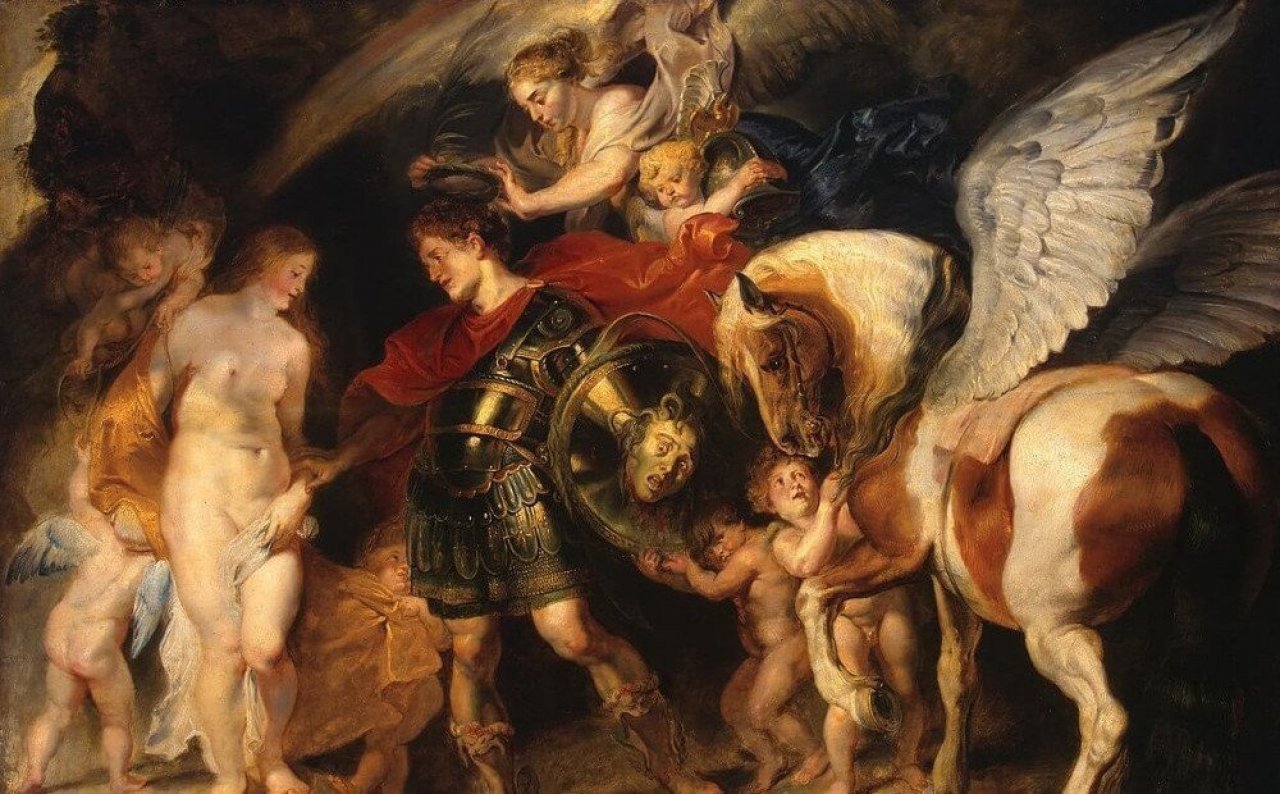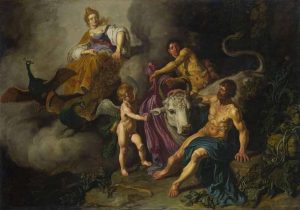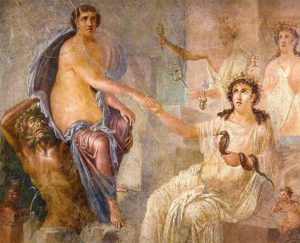The Greek equivalent of Sumerian Gilgamesh, Perseus

Perseus is one of the greatest heroes of Greek tradition, venerated as a demigod. But is Perseus really of Greek origin or was his legend brought from elsewhere to Greece? According to the Greek father of history Herodotus in his The Histories (6.54), the Persians maintained that “ Perseus was an Assyrian who adopted Greek nationality”. This means that Perseus was originally of Mesopotamian origin and could probably be traced to none other than the well-known Gilgamesh, whose story was brought from Mesopotamia to Greek shores.

Hera discovering Zeus with Io, by Pieter Lastman (1617) (Public Domain)
The Perseids or Danaans
The family-tribe from whom Perseus purportedly descended is called the Perseids or Danaans. According to Greek tradition, the lineage of Zeus and Io, through Belus and Anchinoe, produced two brothers, namely Danaos and Aegyptus, from whom the Danaans were descended. The names, Danaos ( Danajo) and Aegyptus ( Aikupitijo), appear in Mycenaean sources, showing this to have been a very old Greek tradition, also known to Homer and Hesiod. Danaos and his family migrated to Greece during an early epoch in Greek history.
The close and intimate connection that existed between the Danaos family and Egypt is quite evident in the names, Aegyptus and Epaphus. Epaphus was a son of Io, grandfather of Agenor and Belus and great-grandfather of Danaos and Aegyptus; his name obviously corresponding with the Hyksos name, Apophis.

Io is welcomed in Egypt by Egyptian goddess Isis. Io is carried by a river god, setting her down at Kanopus near Alexandria. Roman fresco Temple of Isis Pompeii. Museo Archeologico Nazionale (Public Domain)
After the Danaos Dynasty established themselves on the Peloponnese Peninsula, branches of the family ruled in Argos, Tiryns and elsewhere during the Mycenaean Age. Greeks of later times looked upon them as the founders of perhaps the greatest and most brilliant epoch in Greek history, with them having obtained eternal renown and fame under the name, Danaans, in Homer’s Iliad. Homer had knowledge of the story of Perseus and refers to the hero no less than three times, twice as the father of Sthenelos. In the Iliad he also refers to the mortal woman, Danae, “ who bore Perseus, outstanding among heroes”. The Gorgon slain by Perseus is mentioned four times.
Some scholars have identified the Greek Danaans with a people who resided in the region of Tarsus and Adana in Cilicia on the Anatolian Coast from the middle of the second millennium BC.